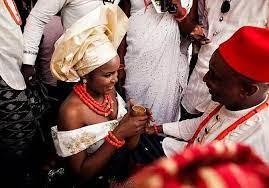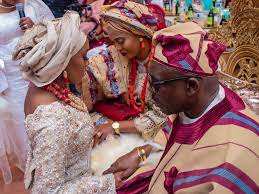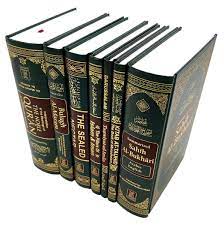
Marriage is a timeless institution that has held a central place in societies across the globe for centuries. Traditional marriage, in particular, refers to the customary and culturally specific practices and values surrounding the union of a man and a woman.
Rooted in cultural, religious, and historical contexts, traditional marriage embodies various aspects of love, commitment, and social cohesion.
Traditional marriage encompasses a range of practices and beliefs, varying from culture to culture. While the specifics may differ, there are common threads that run through most traditional marriages.
At its core, traditional marriage is often viewed as a sacred bond between a man and a woman, recognized by society and governed by social norms and religious teachings. It typically involves legal and ceremonial rituals that mark the union and the establishment of a new family unit.
The concept of traditional marriage has deep roots in cultural and historical contexts. Across different societies, marriage has served various purposes, including the preservation of lineage, social stability, economic alliances, and the procreation of offspring. In many cultures, traditional marriage has been considered a crucial rite of passage, marking the transition from youth to adulthood.
Religion often plays a significant role in shaping traditional marriage practices. Many faiths consider marriage a sacred covenant, blessed by a divine authority.
Religious traditions and teachings provide guidelines for marital roles, responsibilities, and expectations. For example, Christianity views marriage as a lifelong commitment based on love and mutual respect, while Islam emphasizes the importance of companionship and procreation within the bounds of a lawful union.
Hausa traditional marriage is a captivating and culturally significant event that reflects the rich heritage and traditions of the Hausa people, who are predominantly found in Northern Nigeria.
This article delves into the intricate details of Hausa traditional marriage ceremonies, exploring the customs, rituals, and deep-rooted significance behind each element of this auspicious occasion.
Background and Significance
The Hausa people are known for their deep-rooted cultural values and traditions, and marriage holds a special place in their society. Hausa traditional marriage is not only a union between two individuals but also a merging of families, a celebration of heritage, and an occasion to reinforce community ties.
It is a vibrant event that encapsulates the essence of Hausa culture, and its various customs and rituals are designed to uphold and preserve the traditions of the community.
Pre-Marriage Customs
a. Matchmaking and Courtship: The process of finding a suitable match begins with the involvement of family members and elders who take on the responsibility of matchmaking. Once a potential match is found, courtship rituals commence, allowing the couple to get to know each other within the boundaries of cultural norms.
b. Engagement Ceremony (Kayan Aro): The engagement ceremony is a crucial step in Hausa traditional marriage. It involves the exchange of gifts, dowry negotiations, and the formal agreement between the families. This ceremony serves as a public announcement of the couple's intention to marry and strengthens the bond between the two families.
Wedding Preparations
a. Henna Night (Kamu): This pre-wedding event involves the application of intricate henna designs on the bride's hands and feet. It is a joyous celebration where women gather to sing traditional songs, dance, and bless the bride for a prosperous marriage.
b. Bride's and Groom's Preparations: Both the bride and groom undergo special grooming rituals before the wedding. The bride's attire includes a colorful traditional outfit known as "Lalle," accompanied by intricately designed accessories and jewelry. The groom adorns himself in a traditional attire called "Babanriga" and complements it with a cap (Fulah) and a sword (Farkin Gado).
Wedding Ceremony
a. Nikkai: The main event of a Hausa traditional marriage is the Nikkai, which is the Islamic marriage contract ceremony. It takes place in the presence of family members, friends, and religious leaders. The ceremony involves recitation of verses from the Quran, acceptance of the marriage proposal, and the signing of the marriage contract by the couple.
b. Fatiha: Following the Nikkai, the Fatiha ceremony takes place, where a special prayer is recited, and blessings are bestowed upon the newly married couple. It is an emotional moment, symbolizing the union of two families and the beginning of a lifelong journey for the couple.
c. Wedding Reception (Walima): The wedding reception is a grand affair, filled with music, dance, and merriment. Guests are treated to traditional Hausa cuisine, and the couple is showered with gifts and blessings. It is a joyous celebration of love and the culmination of the Hausa traditional marriage ceremony.
Post-Wedding Rituals
After the wedding ceremony, there are various customs and rituals that the couple follows, including the newlywed's visit to the groom's family, receiving blessings from the elders, and the bride's official welcoming into her new home.
Hausa traditional marriage is a tapestry of customs, rituals, and cultural practices that reflect the depth and richness of the Hausa people's heritage. It is a celebration of love, unity, and the coming together of families. The customs associated with Hausa traditional marriage have remained resilient over the years, preserving the cultural identity and values of the Hausa community.
By understanding and appreciating the intricacies of these traditions, we can gain a deeper insight into the Hausa culture and its commitment to upholding its ancestral roots in the context of marriage.























